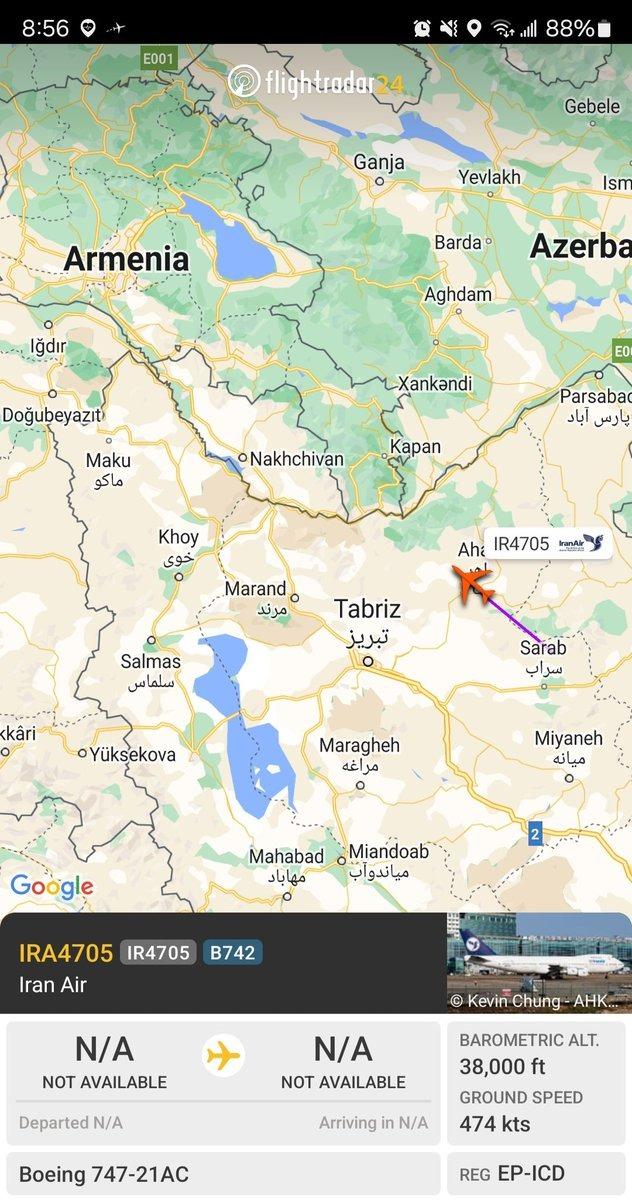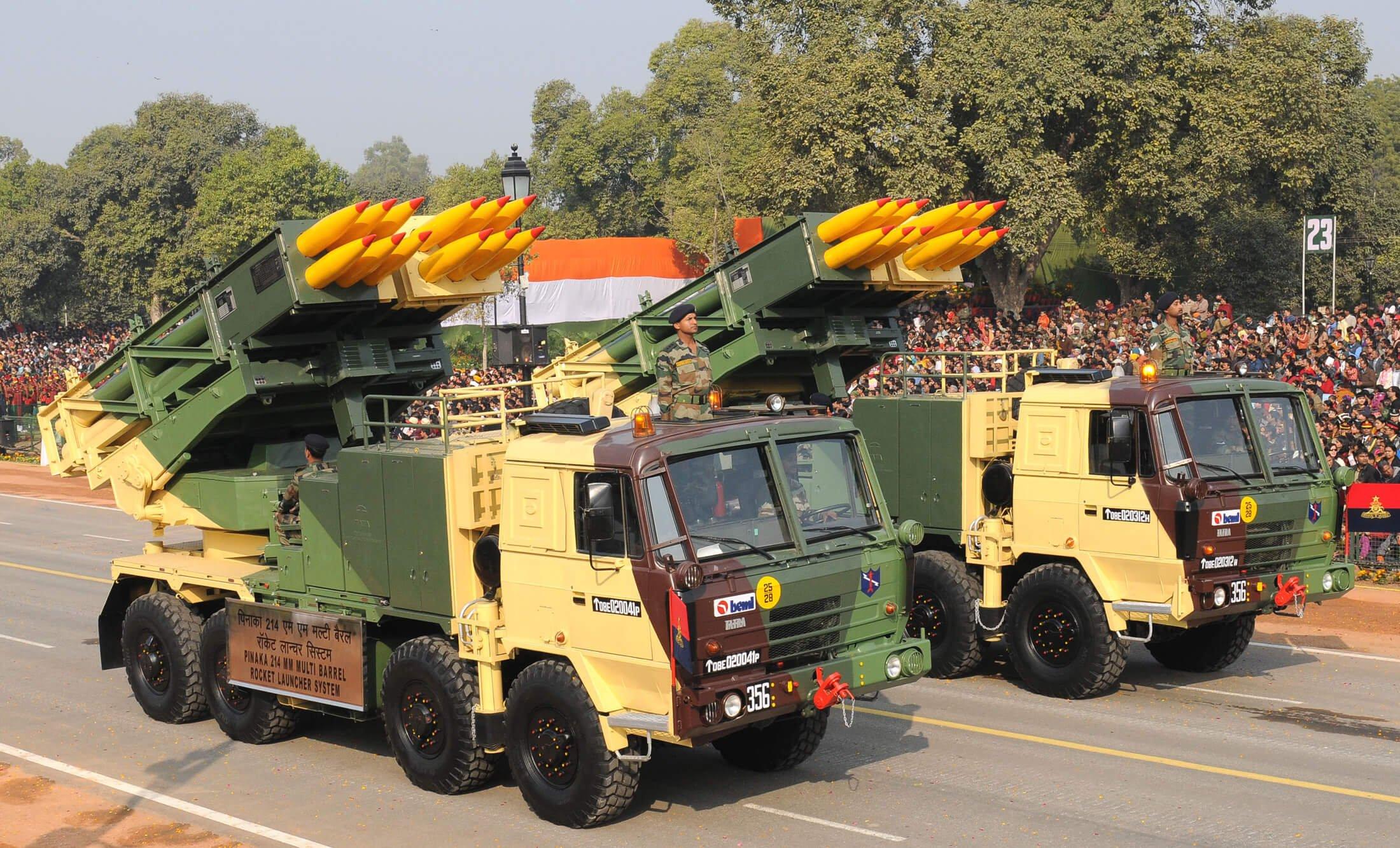Iran's military support to Armenia & aggressive posture against Azerbaijan Geopolitical dynamics in the South Caucasus
In April, an Iranian airline, IranAir, operated a Boeing 747 freighter for three reported flights from Tehran to Yerevan for shipments of weapons and drones.
Sources indicate that this particular aircraft was previously utilized by the Iranian Revolution Guards Corps (IRGC) and is predominantly utilized for transporting weapons. Armenian media sources suggest that Iran utilized the cargo plane to deliver drones and other armaments to Armenia.
Flight number IR4705 was documented to have arrived in Yerevan on various dates including 29 March at 12:10, 30 March at 14:03, 2 April at 05:48, and 3 April at 07:32, departing on 4 April at 12:29.

Iran’s declared “principles” & reality
Iran has a long-standing history of portraying itself as a protector of Muslim rights on an international level, reflecting its belief that it is a leader in the Muslim world and its desire for regional power. There are various reasons behind Iran's claims of upholding the rights of Muslims globally, although these claims are often inaccurate and serve Tehran's geopolitical goals.
The Islamic Republic of Iran was formed after the 1979 Iranian Revolution, which deposed the monarchy and established an Islamic government led by Shia clerics. Consequently, Iran views itself as a supporter of Islamic values and principles, including unity among Muslims.
Through these proclaimed but unrealistic values, Iran aims to exert its influence in the Middle East and beyond, particularly among Shia Muslim communities. By positioning itself as a defender of Muslim rights, Iran seeks to gain support and solidarity from Muslim populations worldwide, especially in nations where Shia Muslims are a significant minority or majority.
Iran's assertion of protecting Muslim rights can also be interpreted within the context of its rivalry with other regional powers, such as Saudi Arabia. Iran and Saudi Arabia vie for influence in the Muslim world, and advocating for Muslim causes enables Iran to challenge Saudi Arabia's leadership in the Sunni Muslim community. Iran has backed various groups and movements in the Muslim world that align with its interests, such as Shia militias in Iraq, Hezbollah in Lebanon, and the Houthis in Yemen.
By proclaiming its defense of Muslim rights, Iran can legitimize its support for these allies as part of a broader commitment to the Muslim ummah (community). On a domestic level, championing Muslim causes can also function as a unifying call to rally Iranians together and bolster support for the Iranian government, particularly during periods of internal unrest or economic hardship. In general, Iran's affirmation of safeguarding the rights of Muslims worldwide is propelled by a mix of ideological, geopolitical, and domestic factors, all aimed at enhancing Iran's influence and credibility both regionally and globally.

Iran’s declared “principles” nothing more than a smokescreen
Iran is willing to collaborate with nations that are against Islam and in particular Azerbaijan and the government enforcing strict religious practices in many areas at home makes exceptions in its foreign policy.
Alongside France, a nation frequently criticized for its Islamophobic views, Iran is supplying weaponry to Armenia, a country known for desecrating Azerbaijani mosques by housing pigs within them. This demonstrates Iran's willingness to turn a blind eye to the harm inflicted on its fellow Muslims and even participate in it.
Officially, Tehran's alignment with Islamophobic nations like France signifies its readiness to set aside ideological disparities for strategic gains. The most striking example of this contradictory partnership is Iran's involvement in arming Armenia, which engaged in disrespectful behavior towards mosques, including the controversial act of housing pigs inside them during the 30-year-long occupation of Azerbaijani territories.
The current stance diverges from the strict observance of religious values at home and once again showcases Iran's flexibility in foreign policy for strategic benefits. This inconsistency raises doubts about Iran's true dedication to its religious principles.
The April 5 meeting involving the US, the European Union, and Armenia in Brussels faced strong opposition from Baku, Ankara, and Moscow. In contrast, Tehran chose to remain silent, echoing its past responses to similar diplomatic moves by Western nations in the region.
While Iranian officials often voice concerns over the frequent visits of Western diplomats to nearby Azerbaijan, they appear unconcerned about developments in Armenia. This double standard prompts questions about Iran's strategic goals and partnerships in the Caucasus.
Although the outcomes of the agreements made at the Brussels meeting remain uncertain, they are bound to significantly impact the region's dynamics and geopolitical alignments. As alliances evolve in the Caucasus, Iran's pivotal role cannot be overlooked, given its strategic position and intricate relationships with neighboring countries.
Iran's foreign policy is driven by its economic interests in the Caucasus region. However, it is important to note that if Armenia continues to align itself with Western powers, it may face the risk of falling apart. Under such a scenario, Iran's efforts to establish trade agreements, energy partnerships, and economic ties with Armenia would be futile. Instead of building stronger ties with neighboring powers like Türkiye and Russia, Iran is increasingly leaning towards the West, which it has labeled as the "devil's country".
By trying to balance its influence in Armenia with that of its regional rivals, Tehran is jeopardizing the stability of the South Caucasus region. Iran may have secured a stake in Armenia that could potentially lead to its disintegration, hence its silence on the issue in question.
Iran's support for Armenia and its aggression against Azerbaijan has raised questions about the true intentions of the Iranian government. Experts in Azerbaijan believe that Iran is actively working to undermine Azerbaijan's sovereignty. The Iranian authorities are allegedly orchestrating efforts to destabilize Azerbaijan and create chaos within the country. Reports suggest that Iran is mobilizing forces in Qom and other locations to prepare for potential conflict with Azerbaijan.
Furthermore, there are concerns about the presence of a fifth column within Azerbaijan, which is believed to be supported by Iran. This alleged fifth column is said to be working against the interests of Azerbaijan and may still be active. Iran's utilization of Armenia as a tool to pressure Azerbaijan is seen as a method to indirectly influence the country, as Iran lacks direct mechanisms to do so. Iran's decision to arm Armenia has further strained relations with Azerbaijan, particularly as Azerbaijan has been purchasing weapons from European countries.

Recent reports indicate that Armenia is diversifying its sources of arms procurement, including purchasing weapons from India and engaging in negotiations with Iran. The consequences of these agreements are now manifesting, as Iran's direct support for Armenia is hindering the peace process between Azerbaijan and Armenia. By prolonging the conflict and preventing the signing of a peace agreement and border demarcation, Iran is effectively obstructing the normalization of relations between Azerbaijan and Armenia.








